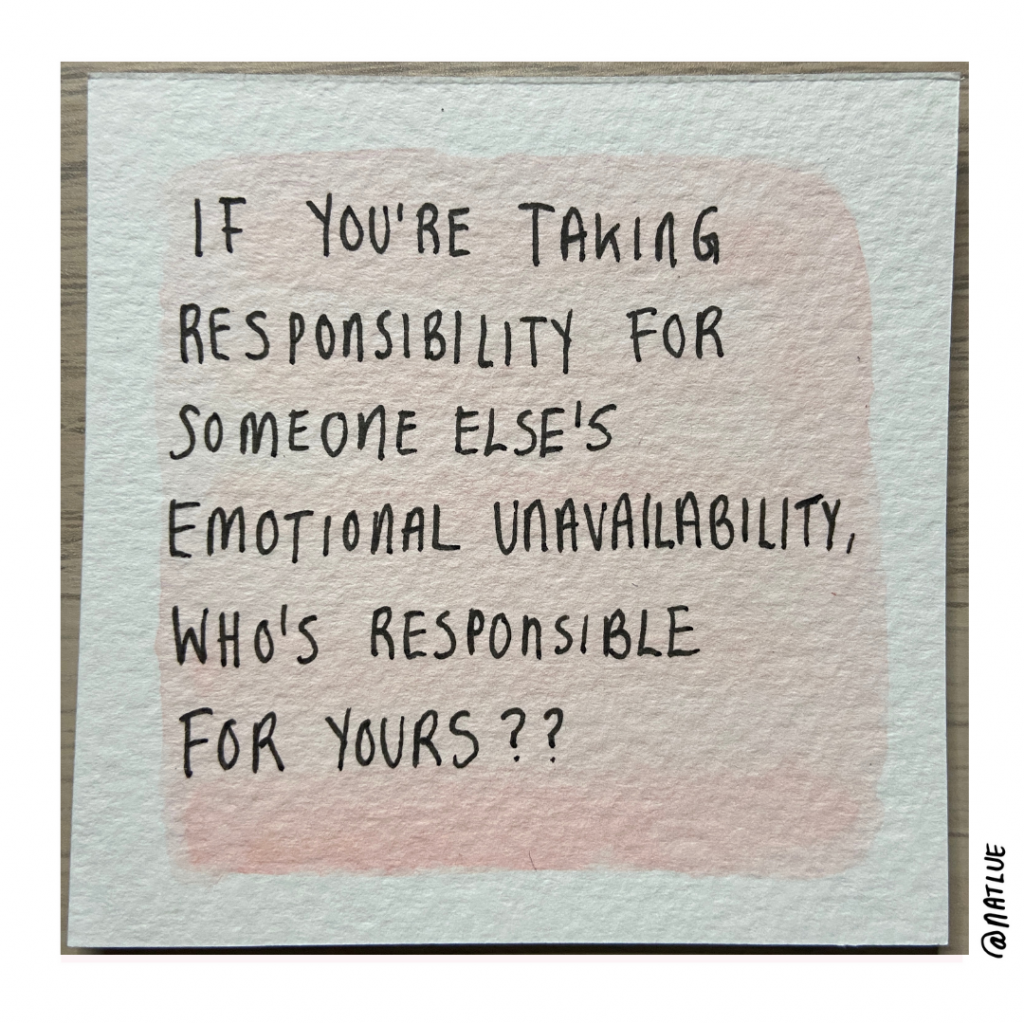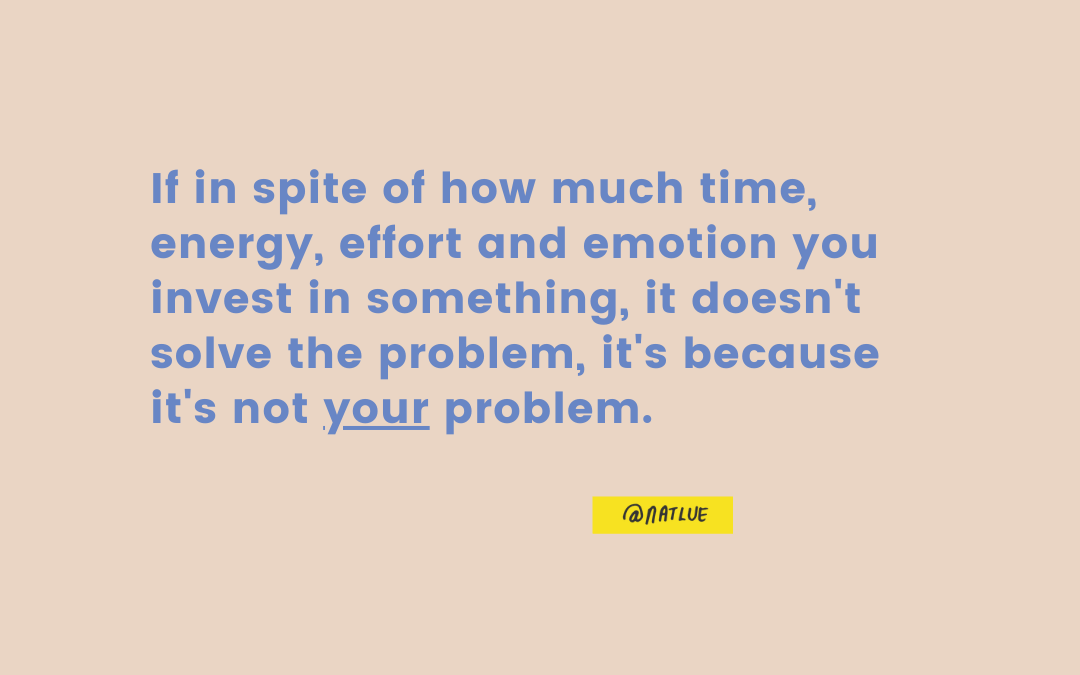In my first book Mr Unavailable and the Fallback Girl, I talk about the self-blame someone’s emotional unavailability can trigger.
“Many readers [of Baggage Reclaim] believe their situation is unique and that the strange relationship that they’ve found themselves in is a direct result of something that they’ve said or done. They often think they’ve misunderstood something, that they’re going crazy, that they need to change themselves so that they can ‘win’ his love and commitment, or they wonder what they can do to change him.”
Unavailable relationships invariably involve linking efforts and outcomes (efforting), which is what causes the pain of self-blame and codependency. While we might see tangible results from efforting with work and exercise, our interpersonal relationships don’t yield to these. We discover that our efforts don’t make it any more likely that people will bend to our will.
Blaming ourselves for someone’s emotional unavailability indicates that we’ve misunderstood the problem and what it takes to create, forge and sustain loving relationships. Believing that our efforts drive the success of a relationship, including how the other party behaves, is a codependent mentality. It’s a legacy of believing that parents/caregivers emotional habits were our fault too.
The reason why they’re still emotionally unavailable despite everything you did for them or the relationship is that you are not the solution to someone else’s internal issues.
Someone else’s emotional unavailability is not a you-problem. It’s inside of them.
Just as inadequate parenting doesn’t equal inadequate child, a romantic partner inadequately meeting our needs and avoiding intimacy doesn’t equal us being an inadequate partner.

If in spite of how much time, energy, effort and emotion you invest in something, it doesn’t solve the problem, it’s because it’s not your problem. That, and you are trying to address the wrong issue.
Many people get caught out by unavailable relationships because they misinterpret how someone came across in the beginning, the more talk than action, or the temporary positive shifts in the unavailable person’s behaviour as being tied to their effort.
- They are different from how they were in the beginning because I have not tried hard enough. Or, it’s because they’ve realised I’m not worthy enough.
- Actions aren’t matching words because I haven’t proved myself worthy enough.
- They did improve/change for a bit, so I must have done something wrong. Or, I need to try harder.
Being emotionally available isn’t something that someone chooses to be based on how worthy you are.
The more you try to ‘make’ someone become emotionally available is the more emotionally unavailable you become. Why? Because to invest in this mentality requires you to live a lie. That’s a boundary issue–and no boundaries equals no intimacy.
Instead of wondering why they’re ‘still’ emotionally unavailable, acknowledge what you trying so hard reveals about your unavailability. Acknowledge the old wounds that trying to make someone change represents.
When you have a more honest, intimate relationship with you, you have it with others. You won’t settle for less than what you can already be and do for yourself. And when you understand you and your boundaries, you won’t take responsibility for trying to make someone feel and give. You get to reclaim yourself and move on to mutually fulfilling relationships.

 Add to favorites
Add to favorites 
